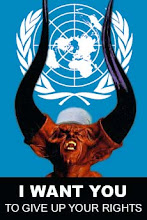Can Europe and China shape the new world order?
 The rise of China is now one of the principal strategic issues facing the
The rise of China is now one of the principal strategic issues facing thetransatlantic community. While it first assumed prominence during the spat
over the lifting of the EU arms embargo, Europeans and Americans are now
as likely to encounter China when addressing policy towards Iran, Africa, or
Central Asia as when dealing with traditional East Asian security issues.
As China’s global reach and impact grows, dialogue and co-operation
between Europe and the United States are going to become ever more
important for policy-makers on both sides of the Atlantic, if they are going
to shape an effective response. The German Marshall Fund is pleased to be
supporting and organising a range of events and research exploring these
issues, and to have been working with the Centre for European Reform on a
number of them. This excellent paper is one of the first to look at EU-China
relations in a fully global context and should be required reading for
Europeans and Americans alike.
China and the EU in a multipolar
world
Europe’s relationship with China has been mainly commercial. Bothworld
sides would benefit from their partnership becoming more political
and strategic – and so would the rest of the world. However, rising
tensions, over subjects such as trade, climate change and human
rights, risk damaging the relationship and disrupting progress
towards closer strategic ties.
Both the EU and China are helping to shape a new international
order. For many European observers of international affairs, it is
obvious that power is shifting from west to east, and that the world
is becoming increasingly multipolar. They see a gradual transition
from the hegemonic order of the 1990s, when the US was the sole
superpower, to a more complicated international system in which
several poles – including Brazil, China, the EU, India, Japan and
Russia – have weight or the potential to develop it. Many Europeans
are rather relaxed about this evolution, though it makes the more
Atlanticist among them feel uncomfortable.
Americans, unsurprisingly, tend to be less sanguine about this trend.
Given that some of those who have talked most about multipolarity
– including the former French president, Jacques Chirac, and the
former Russian president, Vladimir Putin – have also, at times, been
very critical of the US, Americans can be forgiven for seeing the
concept as anti-American.
Economics, and notably the rapid growth of the ‘BRIC’ economies
(Brazil, Russia, India and China), is driving this change. According
to predictions by the Economist Intelligence Unit (EIU), by 2020 the
American, EU and Chinese economies will each account for just
under 20 per cent of global GDP (calculated on the basis of
purchasing power parity). It predicts that by 2030, the Chinese
economy will be the largest in the world, while the relative weights
of the US and the EU will continue to fall. Although much
uncertainty surrounds such figures, the trend seems clear.
.
 Nation Multimedia | New World Marching Orders Nation Multimedia, Thailand - With the title taken from George Bush Senior's 1991 "New World Order" speech, this is more of the stuff that the mainstream news media fail to or choose not ... |
A terrific essay on the new world order
The Spokesman Review, WA -19 hours ago
Also borrowed from a Romenesko link today is an essay from New York University Professor Jay Rosen. Rosen is one of our craft's great truth tellers. ...
The Spokesman Review, WA -
Also borrowed from a Romenesko link today is an essay from New York University Professor Jay Rosen. Rosen is one of our craft's great truth tellers. ...
New World Order theTrumpet.com, OK - A world in which there is the very real prospect of a new world order. … A world in which freedom and respect for human rights find a home among all nations ... |
Quantum physics’ new world order
The National, United Arab Emirates -Jun 23, 2008
Standing behind Max Born are, from left to right, William Osler, Niels Bohr, James Franck and Oscar Klein. Martial Trezzini / Corbis It has been said that ...
The National, United Arab Emirates -
Standing behind Max Born are, from left to right, William Osler, Niels Bohr, James Franck and Oscar Klein. Martial Trezzini / Corbis It has been said that ...
Beijing embraces Brave New World of buildings
CNN International -Jun 23, 2008
By Stephanie Busari LONDON, England (CNN) -- China's new found wealth has seen an explosion in the number of new developments springing up in what is, ...
CNN International -
By Stephanie Busari LONDON, England (CNN) -- China's new found wealth has seen an explosion in the number of new developments springing up in what is, ...

















No comments:
Post a Comment